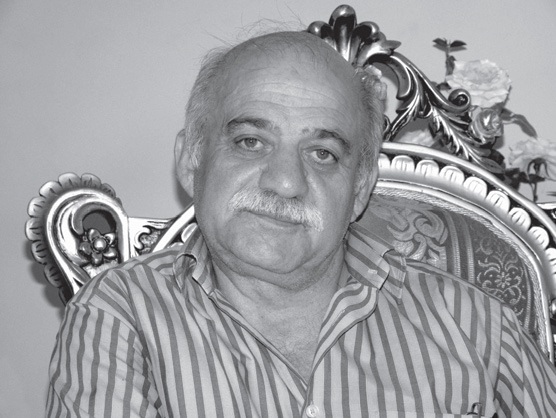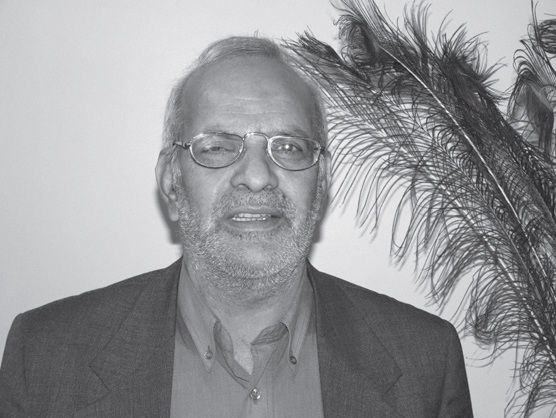Air Raid to Al-Waleed (18)
The Story of Demolishing Fighters and the Equipment in Al-Waleed Triple Military Bases Known as H-3
2016-5-8
Air Raid to Al-Waleed (H-3)
The Story of Demolishing Fighters and the Equipment in Al-Waleed Triple Military Bases Known as H-3
By: Brigadier General Ahmad Mehrnia
Tehran, Sooreh Mehr Publications Company
2010 (Persian Version)
Translated by: Zahra Hosseinian
Baratpour explains the generalities of operations for pilots and co-pilots carefully. During his speaking, he recommends and emphasizes that the subject should be between themselves until the end of operations and no one is aware of it. At the same time, he throws a knowing glance at three reserve pilots; that is, you must pay more attention than others. So far, details of operations implementation, as well as specific points of it, are presented for audiences on the map. Only one point has not raised and it was not advisable to be raised now in public. After brief is finished, questions of two or three participant pilots were answered. Baratpour asked pilots of rear cabin to leave the room for signing daily log books of battalion and writing flight information and specific codes of day[1], which should be along with each pilots.
Now, he and only the pilots of front cabin were in the room and he should fill them in on the last information. Again he insisted: ‘lest each of you mention to the thing I want to say.’ And all nodded.
"look my dear fellow, in our opinion, flying on the western margin of the Iraqi border and refueling with two supertankers will be leaked out with no doubt, and the Iraqi radars will be informed of our existence; and this means a big disaster! It’s better to say, destruction of all of us and not reaching to the target!"
Pilots scowled a little, but Baratpour continues:
"Therefore, I and respected commander of base and Col. Izadseta, who is present in one of tankers, privately decided that to run the risk of implementing an important action by our responsibility and without coordination with the superior authorities, and instead of flying in Iraq territory, enter a few miles into Syria. Please don’t share it even with copilots until reaching near the Syrian border. Now what you must to do is to note down coordinates of the new points according to the map, and timely set the navigation device."
One of the bases in Syria is introduced as an emergency base, and all breathed a sigh of relief.
As with all precautions the operations may still be leaked out, and Iraq's air force to attack for neutralizing it, the region must be covered and watched. Thus, one hour and twenty minutes before sunrise, the first aircraft for air covering at the West region fly from Hamedan base. Its pilots are First Lt. Mohammad Hussein Molaei and First Lt. Mohammad Ali Rivandi in the rear cabin.


Disable war veteran, Colonel Mohammad Ali Rivandi and Colonel Mohammad Hussein Molaei
While showing the date of April 4th 1981 with finger on his personal lineup card, Mohammad Hussein Molaei points out:
"I and Mohammad Ali Rivandi had been briefed to fly one hour and half before sunrise for doing air cover in the West region of base and carefully watch over the situation. Although I myself would fly with aviation Beechcraft "Bonanza", and because of this a few days before I had gone to the Tehran HQ and brought the order of flight operations, but really didn’t know anything about the main story. But with authorities’ emphasis on meticulous care, I understood that it should be an important thing. Thus, I asked the pilot of rear cabin not to take his eyes off the radar a moment. I myself took care of the situation wholeheartedly. Approximately one hour and twenty minutes we flew in the darkness of early morning, until the beam of sun shone on our aircraft wings. We continued for another hour during the light and then landed at the base. Fortunately, the mission was done according the plan."
Remembering that day, Rivandi (whose right eye has injured in hitting a missile to aircraft) sigh of regret and says:
"In the main plan, I was the copilot of Capt. Rezaei Khosravi. I don’t know what happened that they substituted Akbarpour for me; and immediately ordered me to go for air cover mission, along with Molaei. Even though I wanted to be involved in the attack and bombing, but thank God that I was on the mission. I should to say that this operation always makes me to pride myself on my job."
Meanwhile, the report of good weather is sent to the command post of center and Hamedan base from command post of Tabriz base, and Baratpour to be informed immediately. Everything has been prepared for implementing this major operation.
Full brief of mission has been accomplished, and since the pilots should be in the sky about five hours, quickly a breakfast is prepared and they are invited to breakfast. During breakfasting, copilots who know that an important thing must be raised after their leaving of the brief room, try in many ways to figure out, but face with senseless answers.
G-suit garment (anti-gravity), flight helmet, and other equipment are in the personnel equipment room in the vicinity of the flight battalions. Therefore, all headed there after eating breakfast and begin wearing G-suit garment and checking the flight helmet. At the same time, a pack of nuts is given to each pilot, so that if they feel hungry during the flight, or forced to leave the aircraft, can use it.[2] A Colt revolver and several cartridges, of course, are also given to pilots. Kazemi says:
"When he gave me Colt, asked: ‘Major! How many cartridges do you want?’ I answered: ‘only one!’ He asked: ‘Really! Just one?’ I said: ‘Yeah, just for killing myself, if I’m captured, so have not to give information to enemy under torturing."
[1] Because the enemy could easily intercept our conversations, from the first day of the war all the station names and actions (their eavesdropping could cause leaking out of important information) were given to pilots in coded form on a daily basis; so that, to minimize the enemy’s possible exploitation. The paper on which each pilot writes his necessary flight information is called ‘Lineup card’.
[2] It should be noted that a first-aid box, called ‘Survival Kit’, place under the seat of each fighter pilot, which includes needed items to survive in hard times. Water and some edible are part of this package.
Number of Visits: 5061








The latest
- A Critical Look at Pioneers of the Valley of Light
- The Artillery of the Islamic Revolutionary Guard Corps
- Translation in Oral History and Its Potential Pitfalls
- 100 Questions/14
- Third Regiment: Memoirs of an Iraqi Prisoner of War Doctor – 14
- Analysis and classification of oral literature of resistance using emerging technologies
- 100 Questions/13
- Preface and Introduction in Oral History Books
Most visited
- Translation in Oral History and Its Potential Pitfalls
- Oral History of 40 Years
- Analysis and classification of oral literature of resistance using emerging technologies
- Third Regiment: Memoirs of an Iraqi Prisoner of War Doctor – 13
- The Artillery of the Islamic Revolutionary Guard Corps
- Preface and Introduction in Oral History Books
- 100 Questions/14
- Third Regiment: Memoirs of an Iraqi Prisoner of War Doctor – 14
100 Questions/8
We asked several researchers and activists in the field of oral history to express their views on oral history questions. The names of each participant are listed at the beginning of their answers, and the text of all answers will be published on this portal by the end of the week. The goal of this project is to open new doors to an issue and promote scientific discussions in the field of oral history.The Role of Objects in Oral Narrative
Philosophers refer to anything that exists—or possesses the potential to exist—as an object. This concept may manifest in material forms, abstract notions, and even human emotions and lived experiences. In other words, an object encompasses a vast spectrum of beings and phenomena, each endowed with particular attributes and characteristics, and apprehensible in diverse modalities.100 Questions/6
We asked several researchers and activists in the field of oral history to express their views on oral history questions. The names of each participant are listed at the beginning of their answers, and the text of all answers will be published on this portal by the end of the week. The goal of this project is to open new doors to an issue and promote scientific discussions in the field of oral history.The Importance of Pre-Publication Critique of Oral History Works
According to the Oral History website, a meeting for critique and review of the book “Oral History: Essence and Method” was held on Monday morning, November 10, 2025, with the attendance of the book’s author, Hamid Qazvini, and the critics Mohammad Qasemipour and Yahya Niazi, at the Ghasr-e Shirin Hall of the National Museum of the Islamic Revolution and Sacred Defense.

